Iran Outsourcing Infant Formula Production To Turkish Company
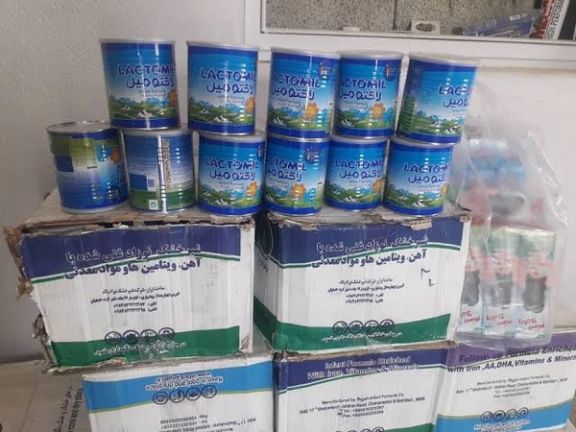
The Iranian government has outsourced the production of infant formula to a company based in Turkey amid a domestic crisis.

The Iranian government has outsourced the production of infant formula to a company based in Turkey amid a domestic crisis.
Hani Tahvilzadeh, the head of the Association of Infant Formula and Baby Food Producers, said that the decision was made by Ebrahim Raisi's administration, although he did not disclose the name or provide further details about the Turkish company involved.
The crisis began over a decade ago, and Tahvilzadeh emphasized the dramatic decline in the production capacity dropping from ten million units per month to just five million, as a consequence of the government's not giving local producers access to foreign currency nor the materials needed for domestic production needs.
Tahvilzadeh highlighted that the policy has led to the suspension of production in domestic companies. The IRGC-run Fars News agency showed the huge price rises in formula since last year alone. Nan infant formula, which was 43,000 tomans last year, now costs 80,000 tomans. Bebilac 1 has increased from 40,000 to 72,000 tomans, and Hipp Organic has risen sharply from 229,000 tomans to 450,000 tomans.
The situation unfolds as the scarcity of infant formula in Iran coincides with government officials from the Islamic Republic encouraging Iranian families to have more children. In addition to the infant formula crisis, recent years have also witnessed a severe shortage of diapers in the country.
The root cause of this predicament lies in the Central Bank's failure to allocate the required foreign currency to domestic producers. Consequently, Iranian citizens are now provided with coupons to obtain baby formula, and they are witnessing this dire situation with their children's well-being at risk. As of October 12, it has become mandatory to present a national ID and the baby's birthdate to pharmacies in order to obtain infant formula.
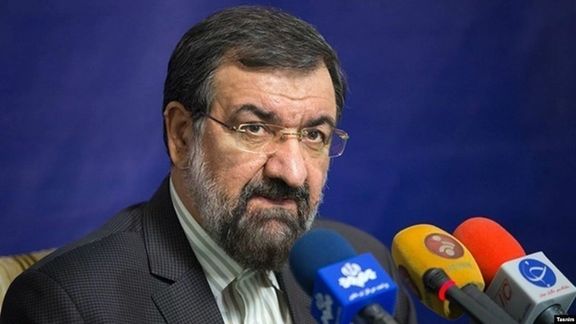
Muslim governments should form an Islamic army to to counteract excesses of the United States and Israel in the region, Mohsen Rezaee, ex-IRGC commander said on Tuesday.
Rezaee, who is a member of the Islamic Republic’s constitutional Expediency Council, told Al Jazeera in an interview that Israel finds itself “in a quagmire” and the current war “could become a long and global conflict.”
Although Iranian officials have been strongly supporting Hamas since the October 7 terror attack on Israel, so far they have hesitated in widening the conflict.
The senior regime insider also repeated some of the claims made by other officials, including an assertion that the United States is running Israel’s war in Gaza. He added, “The Zionist regime lacks the knowledge of popular struggles and has entered a vast quagmire, possibly taking action to expand the war in the region to conceal it.”
Rezaee is known for his suggestion a few years ago to take American servicemen, who are in the Middle East hostage and then demand a one-billion-dollar ransom for each.
He is also known as one of the first members of the Islamic Revolutionary Guard since the early days of the Islamic Republic.
Rezaee stated, “My suggestion is for Islamic governments to establish an Islamic army to counteract excesses and the interventions of the United States and Israel in the region.” He claimed, that the destruction of Hamas and Islamic Jihad is impossible, stating: "Resistance groups have sufficient capabilities in ground warfare, and they will defeat Israel again. The future of the war depends on the behavior of the United States and the Zionist regime in the coming days."
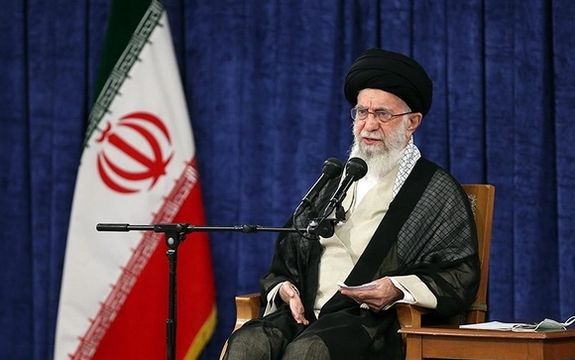
Israel’s ambassador to the UN Gilad Erdan launched an unprecedented attack on the regime in Iran, likening Supreme Leader Ali Khamenei to Adolf Hitler.
Erdan was speaking to the UN Security Council Monday afternoon, as Israel expands its ground invasion of Gaza, backed up by relentless bombardment of the enclave to “eradicate” Hamas.
“Ismail Haniyeh –the leader of Hamas– is not Adolf Hitler,” Erdan said. “He is not the Fuehrer. He is not the leader of this death cult, which wants to rule the world. This role is played by the supreme leader of Iran, the bloodthirsty Ayatollah Khamenei.”
Officials in Israel and Iran are not known to speak kindly of one another. But the words of the Israeli envoy to the UN are particularly severe.
“Just like the Nazi regime, the Ayatollah's regime sows death and destruction everywhere it touches,” Erdan said. “The Ayatollah regime is the Nazi regime of our time, and their army includes Hamas, the Palestinian Islamic Jihad, Hezbollah, the Houthis, the IRGC, and other jihadists.”
The Islamic Republic’s support for Hezbollah and Hamas is no secret. Leaders of the regime speak (more or less) openly about their patronage of what they call “the resistance.”
In the weeks since Hamas’ attack on Israel, the rulers of Iran have maintained a degree of ambiguity: boasting about their close and special relationship with Hamas, while refusing to officially recognise any role in the October 7 attack.
The Biden administration seems to have taken a similar position: so far refusing to implicate the Islamic Republic and stressing that there’s no evidence to prove the regime’s direct involvement in planning or executing the attacks and the brutal killing of 1,400 people in Israel.
Erdan referred to the incident in his speech, blaming not just Ali Khamenei, but all those present at the meeting.
“I will make you remember the shame of your silence every time you look at me," Erdan said to the security council, "until the Security Council stops being silent and condemns the October 7 massacre”. “Some of you have learned nothing in the last eighty years!”
The UN General Assembly voted for a humanitarian ceasefire last week. Many agencies and organizations have repeatedly warned about the situation in Gaza.
On Monday, the head of the UN relief agency for Palestinian refugees described the situations in Gaza as an “unprecedented” and “unbearable” human tragedy”. Addressing the Security Council just like the Israeli envoy, Philippe Lazzarini said nearly 70 percent of those reported killed have been women and children, according to health officials in Gaza.
The al-Qassam Brigades, the armed wing of Hamas, claimed to have launched anti-tank missiles at Israeli forces early on Tuesday. The Israeli military posted photos that purport to show its troops in the Gaza strip.
As the Israeli ground invasion of Gaza continues, many are fearing a full blown regional war, engulfing other actors like Hezbollah –whose leader, Hassan Nasrallah has been scheduled to speak Friday, raising speculations that he would declare war on Israel.
The UN special envoy to Syria said to the Security Council Monday that Syrians face “a terrifying prospect” of a wider war. “Spillover into Syria is not just a risk; it has already begun,” Geir Pedersen said.
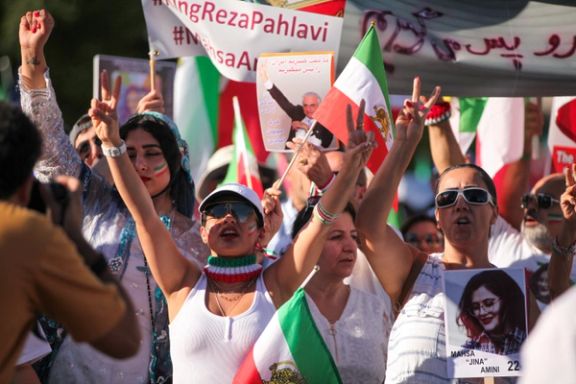
Prince Reza Pahlavi says Iranians will take back their country from the forces of evil, while standing beside a newly unveiled statue of Cyrus the Great in the US.
Pahlavi made the remarks during the unveiling ceremony of a monumental statue of Cyrus the Great at the Millennium Gate in Atlanta, Georgia on October 30. The day is a national Iranian holiday to commemorate the founder of the ancient Achaemenid Persian Empire, whose empire-building in the 6th century BC was marked with respect for diversity and human rights. His empire expanded from Central Asia and the eastern wing of the Persian plateau and beyond to Mediterranean shores and North Africa.
Pahlavi, the son of the last shah of Iran who was deposed by the 1979 revolution and the establishment of the Islamic Republic, praised Cyrus as a “consequential visionary” and “a reminder of light in Iran’s history” who outlined a grand vision for humanity with equality, respect and justice for all people.
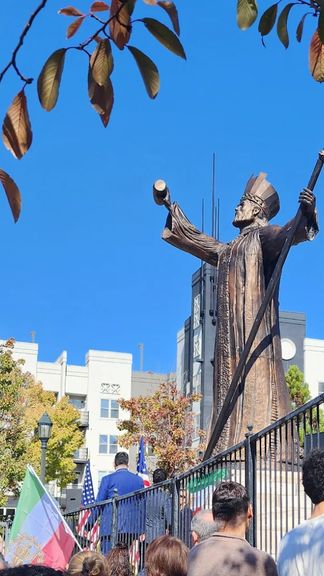
He referred to a famous address by his father Mohammad-Reza Shah Pahlavi during the celebrations to mark 2,500 years of monarchy in Iran in 1971.
"O Cyrus [Kourosh], great King, King of Kings, Achaemenid King, King of the land of Iran. I, the Shahanshah of Iran, offer thee salutations from myself and from my nation. Rest in peace, for we are awake, and we will always stay awake," Mohammad-Reza Shah said.
On Sunday, his son, who has been a leading opposition figure, said, “Not only are Iranians awake but are also inspired by their forefathers to reclaim their country from the forces of darkness and rebuild it with Cyrus’s vision.
He also talked about the events of 'Cyrus the Great Day' at his tomb in Pasargadae in Fars Province, where Iranians gather to pay homage to Iran's pre-Islamic history. The occasion is harshly rejected by the Islamic Republic that sees it as a relic of Iran’s monarchy.
The event sometimes morphs into protests against the regime, with people chanting nationalist slogans.
Security forces block roads to the mausoleum every year to stop people from gathering. The celebration found epic dimensions in 2016. Since 2017, the Revolutionary Guard (IRGC) has been deploying forces to the region and blocking all roads to Pasargadae to make sure that the celebrations were not going to happen.
But still, thousands of young men and women somehow manage to gather around the monument and sing patriotic hymns.
Pahlavi condemned the “tyrannical dictatorship” which seeks to distance Iranians from "their glorious past," and said people who gather in Pasargadae chant, “Iran is our homeland, Cyrus is our father.”
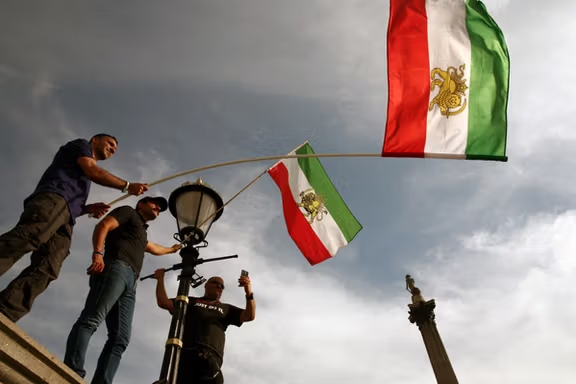
Regional Peace And Global Prosperity
The former crown prince, who has long campaigned for a secular and democratic Iran rather than a restoration of the monarchy, reiterated that sticking to human rights values put forth by the late empire can lead to regional peace. His remarks came against the backdrop of an escalating conflict in the Middle East, ignited on October 7, when Tehran-backed Hamas Islamist militants launched a multi-thronged attack into Israel, killing over 1,400 mostly civilians and taking more than 230 hostages. Thousands of Palestinians have been killed in Israel's retaliatory fire.
He has time and again talked about how the collapse of the Islamic Republic and the establishment of a new government in Iran that is at peace with the world can resolve a plethora of international conflicts.
“If you seek peace in the Middle East and prosperity for humanity, do not let that be just a thing for the past, but a thing of the future,” Pahlavi said, urging the world to help the Iranian people in their uprising against the Islamic autocracy.
According to the US National Monuments Foundation, the statue of Cyrus the Great in Atlanta is dedicated to liberty, justice and peace as the values championed by the king, who, upon liberating Babylon, freed the slaves, established racial equality and rights for women, and declared that all people had the right to choose their own religion.
Based on some historical records, October 28 or 29 in 539 BC was the day when Cyrus entered Babylon after the Neo-Babylonian Empire fell to the Achaemenid Persians in the Battle of Opis. Cyrus the Great set the Jewish people free from the Babylonian Captivity that had taken place decades before. Cyrus facilitated their return to the promised land and he became a notable figure in the Jewish scripture as a savior who helped them build the Second Temple in Jerusalem.
Pahlavi said as “Cyrus freed the Jewish people from the Babylonian slavery, Iranians want to free themselves of the enslavement of the Islamic Republic and rebuild our temple, Iran.”
He expressed confidence that Iranians will ultimately reestablish Cyrus’s legacy and “build peaceful relationships with our friends; both Israeli and Arab, across the Middle East."
Pahlavi said the Iranian people as heirs of the country are “closer than ever" to reclaiming their homeland and returning it to its rightful place in the world.
“Iranian and Jewish people share an ancient bond of friendship that modern Islamic fanaticism has tried (and failed) to destroy. Remembering the past is a powerful perspective for shaping the future; one where diverse peoples and cultures live together in freedom and harmony,” read a statement by the US National Monuments Foundation, the body that installed the Cyrus statue in Atlanta.
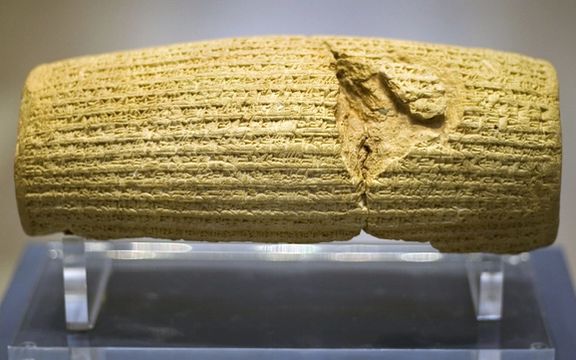
Political Parties For A Democratic Iran
The end of October was action-packed for Iranians who root for a Constitutional or a Royalist Iran. Iran Novin Party (Modern Iran Party), which announced its establishment in the winter of 2023, held its first Congress in Brussels. The party takes its appellation from a party with the same title founded in Iran 1964 and controlling both Iran’s cabinet and the parliament from 1964 to 1975.
Now the party seems to have re-emerged to work against the Islamic Republic and provide a party platform for Iranian constitutional monarchists. Although exiled prince Pahlavi did not participate in the event, he sent a message that was read out loud at the opening ceremony and Pahlavi’s wife, Yasmine, delivered the keynote speech at the event.
Hamed Sheibanirad, the secretary of the party, told Iran International that Iran Novin Party has envisioned activities from three perspectives: actions towards the collapse of the Islamic Republic regime, the first 100 days after the fall or the transition period, and long-time measures after democracy is established in the country.
Nasim Behrouz, one of the organizers of the event, said this party is another opposition party in exile, and called on all such entities to unite against the Islamic Republic. Reza Ahmadi, one of the members of the party, said that Iran’s modern political ecosystem is teeming with different views of people from all walks of life, claiming that constitutionalism is the fruit of a consensus by all views represented in Iran’s political sphere. The Constitutional Revolution of Iran took place between 1905 and 1911 during the Qajar dynasty, leading to the establishment of a parliament and has been called an "epoch-making episode in the modern history of Persia".
"With organization and structure, it is possible to contribute more effectively to the downfall of the Islamic Republic,” read part of Pahlavi’s message to the event read out by political activist Amir-Hossein Etemadi. “These are the political parties that, in the aftermath of the fall of the Islamic Republic, should be involved in shaping the country's political and legal structures."
Public events such as football matches, are a good touchstone to see the real public mood of Iranians. No gathering is held without people chanting slogans in admiration of the Pahlavi monarchs, who were pioneers of leading Iran to its modernization.
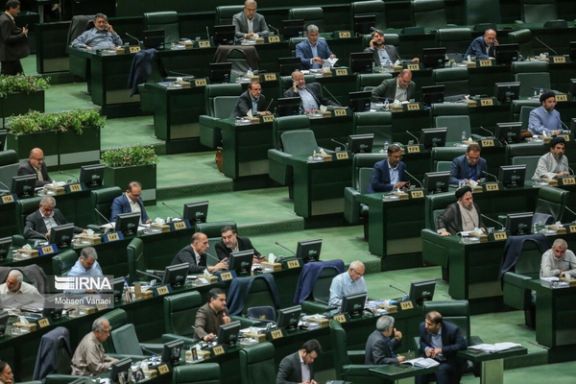
In the upcoming Iranian Parliamentary elections in March, a mere 2 percent of the 24,000 registered candidates are former lawmakers, while just 13 percent are women.
As per the latest figures, over 24,000 Iranians have registered their candidacy for the Majles election, down from the initial 50,000 who registered unofficially in August. This decline in interest may be attributed to the Majles' unpopularity and the government's perceived failure in economic and foreign policy.
Concurrently, former President Mahmoud Ahmadinejad's political rivals have shown sensitivity towards his silence both on the domestic front and on the unfolding conflict in the Middle East.
Recent reports have indicated that politicians from across the Iranian political spectrum are keenly observing Ahmadinejad's silence ahead of the March 1 elections. They have attempted to provoke him to take a stance on the Israel-Hamas conflict, particularly given his notoriety as a holocaust denier.
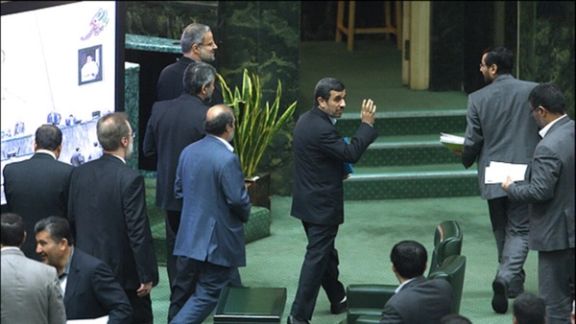
In response to these pressures, Ahmadinejad, through his aide, lawmaker Ahmad Alirezabeigi, conveyed that he would only comment on the war if allowed to address domestic political issues as well. This response suggests that Ahmadinejad, known for his outspoken nature, is under government pressure to remain silent regarding political affairs.
Furthermore, Alirezabeigi clarified that Ahmadinejad does not intend to run for a parliamentary seat, but he will endorse like-minded candidates. It is speculated that the conservative coalition known as Sharian (Strategic Network of the Friends of the Islamic Revolution) will be instrumental in grooming pro-Ahmadinejad candidates.
Abbas Amirifar, a cleric known as Ahmadinejad's exorcist, has told the media that the former president occasionally travels to the Caspian region to meet with his aide and relative Esfandiar Rahim Mashai, who is taking the lead in electioneering for Ahmadinejad. His other aide, Hamid Reza Baghai is also said to be helping Mashai to come up with a list of candidates.
Despite these efforts to weaken Ahmadinejad's influence, many Iranians believe he remains popular among a significant portion of the population. Former Vice President Es'haq Jahangiri has criticized Ahmadinejad for his anti-Israeli rhetoric during his presidency and what he perceives as a waste of national resources. Jahangiri's statement appears to be an attempt to further tarnish Ahmadinejad's image ahead of the election.
As President, the populist Ahmadinejad engaged in virulent anti-Israeli and anti-West statements, stonewalling on the nuclear issues, which prompted stringent UN sanctions on Iran’s economy, and the beginning of a decade-long economic crisis.
Moderate conservative politician Mansoor Haqiqatpoor, a staunch supporter of former Majles Speaker Ali Larijani, also criticized Ahmadinejad, accusing the former president of hiding from the public to avoid expressing an opinion about the Israel-Gaza war.
Furthermore, Haqiqatpoor emphasized that both Larijani and former President Hassan Rouhani would encourage the public to participate in the elections. As of now, neither of them has officially registered their candidacy for the Majles, and Rouhani, who is a member of the Assembly of Experts, has not declared his intention to run for re-election in the assembly. The Assembly of Experts' election takes place on March 1, concurrently with the parliamentary election.
During the previous round of parliamentary elections in Iran, more than 16,000 candidates had registered their candidacy. Only 13 percent of the current registrants are women, and a mere 2 percent are former parliament members. These candidates will undergo scrutiny by the Executive Committee of the Interior Ministry and the Guardian Council before February 1, resulting in a significant reduction in the number of candidates vying for the 290 parliamentary seats.
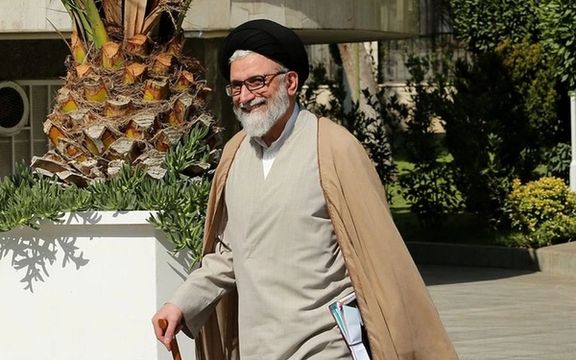
As tensions continue to rise in the region following the recent Hamas attack on Israel, Iranian officials have intensified their rhetoric against the Jewish state.
Esmail Khatib, the Minister of Intelligence of the Islamic Republic, made statements regarding Hamas' October 7 attack, describing it as a "new historical beginning for the eradication of Israel", claiming it will lead to the collapse of the entire Israeli government.
Khatib's comments reiterate the Iranian regime's long-standing opposition to its archenemy Israel, which he called a "fabricated Zionist regime that had crafted a legendary narrative and a Hollywood image over the years.”
His comments come as Israel's troops on the ground in Gaza rescued its first of the more than 230 hostages held by the group designated by countries including the US, UK and EU.
The young female soldier, Ori Megidish, was taken back to her family in Israel as ground operations stepped up since the weekend, a victory for the Israeli government which is coming under increasing pressure to find the hostages, who are mostly civilians.
As Iranians continue to endure the worst economic times in recent history, the regime's ongoing support for its regional proxies such as Hamas, is a knife in the wound. Hamas alone garners at least $100m a year from Iran in addition to military, technical and logistical support.